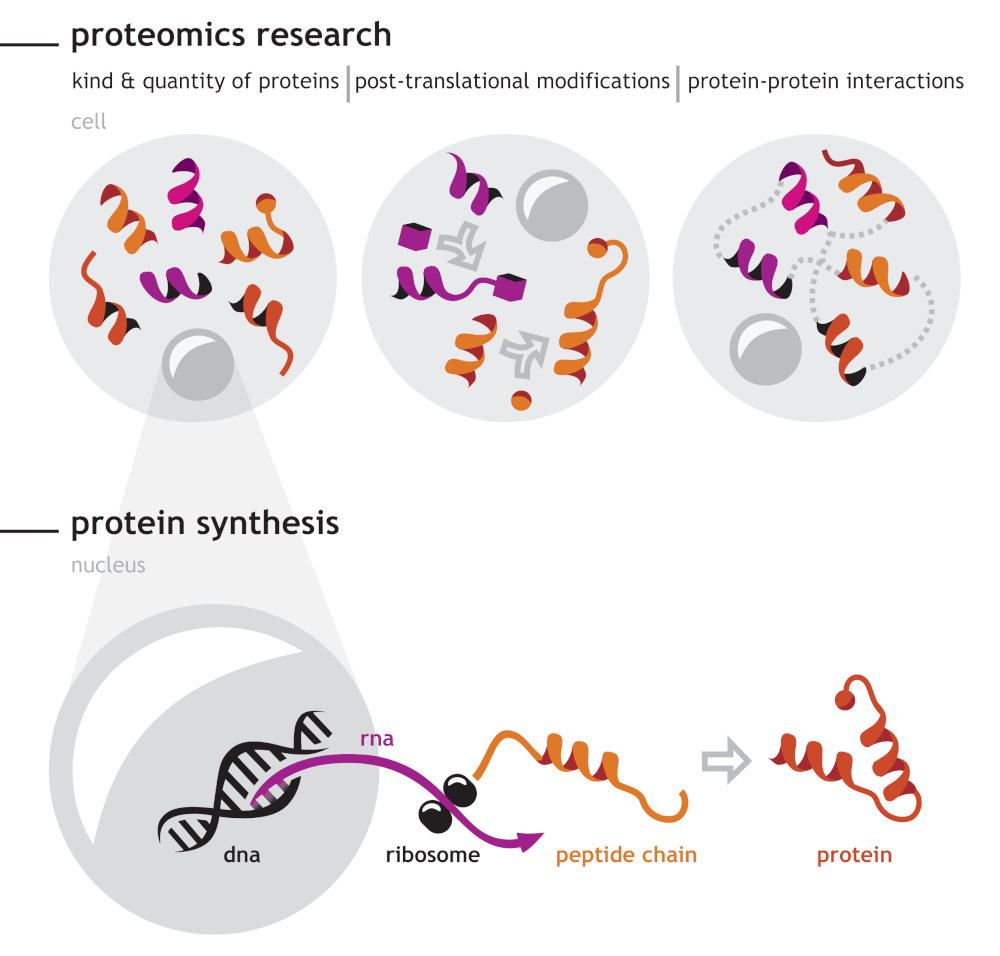Proteomics is the large-scale study of proteins, the essential molecules that drive nearly all biological processes in living organisms. Proteins play key roles in cell structure, communication, metabolism, and disease, making their study crucial for understanding life at the molecular level.

Unlike genomics, which focuses on DNA, proteomics examines the dynamic and complex nature of proteins, including their structures, interactions, modifications, and functions. Since proteins constantly change in response to environmental and physiological conditions, proteomics provides insights that cannot be obtained from genetic data alone.
Advances in mass spectrometry and bioinformatics have revolutionized proteomics, enabling researchers to analyze thousands of proteins simultaneously. This has led to breakthroughs in biomedical research, drug development, biomarker discovery, and precision medicine. Proteomics is also essential for biotechnology, agriculture, and environmental sciences.
By mapping protein networks and understanding their roles in health and disease, proteomics helps researchers develop targeted therapies, improve diagnostics, and explore new frontiers in personalized medicine. As technology continues to evolve, proteomics is becoming increasingly powerful in answering fundamental biological questions and driving scientific innovation.
